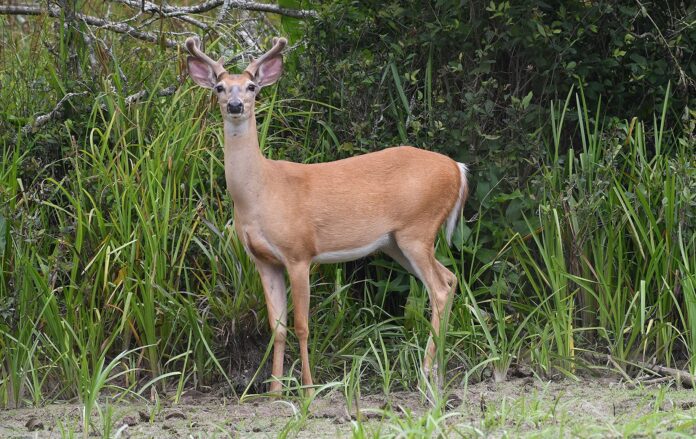
(Georgia Recorder) — The Georgia Department of Natural Resources confirmed Thursday that a hunter-harvested deer has tested positive for the state’s first identified case of the deadly Chronic Wasting Disease.
The positive test came from a 2-year-old male white-tailed deer that was hunted on private property in Lanier County in south Georgia. The Georgia Department of Natural Resources is taking additional samples from the area and has established a management territory that touches a five-mile radius around the location of the positive sample.
“I want to assure our hunters that deer hunting will continue to thrive in Georgia, despite this current discovery,” Georgia DNR Commissioner Walter Rabon said. “Working together with our hunters and all Georgians, we will manage CWD and maintain healthy deer herds.”
Georgia’s deer hunting season ended for firearms Jan. 12, but archers can continue to harvest deer until Jan. 31.
Georgia is the 36th state to have a deer test positive for a disease that is not known to be transmittable to humans, but the Atlanta-based Centers for Disease Control and Prevention recommends that hunters test their animal prior to consuming the meat.
The CDC also warns against eating the venison from CWD-infected animals until the health risks are better understood.
Originally reported in the western United States in the 1960s, the disease has slowly spread to the Southeast in recent years.
Chronic Wasting Disease is similar to the fatal mad cow disease that briefly caused a public panic after an outbreak in the United Kingdom during the 1990s that eventually resulted in the first North American case in 2003.
However, in contrast to CWD, mad cow disease can make humans sick if they eat infected beef.
In addition to being spread by an animal’s bodily fluids, the current threat can also remains highly contagious for many more years in soil and plants.
As part of Georgia’s efforts to minimize an outbreak, lawmakers in 2022 gave the state wildlife officials more power to limit the movement of deer, moose, elk, and caribou carcasses around the state and counties bordering Georgia where positive tests have been confirmed.
Prior to eating deer meat, hunters are also advised to store their venison in the freezer and wait to see if test results come back negative. The public is also encouraged to report roadkill deer and deer displaying unusual behavior to their local wildlife district office.
The biggest defense to mitigate the spread in the earliest stages of detection involves intensive testing and limiting the movement of deer to other places. The long-term affliction can only be diagnosed by examining the animal’s brain after its death.
Georgia has banned the transportation of live deer species from other states since 2005 and has other restrictions on how deer, moose and elk carcasses are handled.
In areas where CWD exists, public health officials also recommend more stringent deer processing.






